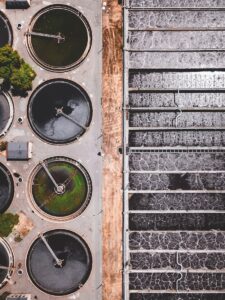Nanomaterials in Electronics: Enhancing Performance and Efficiency
Precision in Electronic Components
Engineering nanomaterials to exhibit specific properties has revolutionized the electronics industry, enhancing performance and efficiency of electronic components. In Saudi Arabia and the UAE, where technological innovation is a cornerstone of economic growth, nanomaterials are being leveraged to create smaller, faster, and more efficient electronic devices. For example, carbon nanotubes and graphene are being used to develop transistors and integrated circuits with superior electrical conductivity and thermal management. This advancement not only boosts the performance of electronic devices but also supports the development of next-generation technologies, such as quantum computing and flexible electronics. By integrating nanomaterials into electronic components, businesses in Riyadh and Dubai can maintain a competitive edge in the global technology market.
Energy Storage and Conversion
Nanomaterials are also playing a critical role in improving energy storage and conversion technologies. In regions like Saudi Arabia and the UAE, where there is a strong focus on renewable energy, advanced nanomaterials are being used to develop high-performance batteries and supercapacitors. Nanomaterials such as silicon nanowires and transition metal oxides enhance the energy density and charge-discharge cycles of batteries, making them more efficient and durable. This innovation is particularly relevant for the growing demand for electric vehicles and portable electronics. By investing in nanotechnology, Riyadh and Dubai can drive the adoption of sustainable energy solutions, contributing to environmental sustainability and energy security.
Sensors and IoT Devices
The development of advanced sensors and Internet of Things (IoT) devices is another area where engineered nanomaterials are making a significant impact. Nanomaterials like metal nanoparticles and nanowires enable the creation of highly sensitive and selective sensors for detecting chemical, biological, and environmental parameters. In Saudi Arabia and the UAE, where smart city initiatives are rapidly progressing, these sensors are essential for monitoring and managing urban infrastructure. By integrating nanomaterials into IoT devices, businesses can develop smart solutions that enhance operational efficiency, reduce costs, and improve quality of life for residents in Riyadh and Dubai.
Targeted Drug Delivery Systems
Nanomaterials are being engineered to develop targeted drug delivery systems, transforming the field of medicine. In Saudi Arabia and the UAE, where healthcare innovation is a priority, these advanced materials enable precise delivery of therapeutics to specific cells or tissues, minimizing side effects and enhancing treatment efficacy. For instance, nanoparticles can be designed to carry drugs directly to cancer cells, ensuring that healthy cells remain unaffected. This targeted approach improves patient outcomes and reduces the overall burden on healthcare systems. By adopting nanotechnology in medicine, Riyadh and Dubai are positioning themselves as leaders in personalized healthcare solutions.
Advanced Diagnostic Tools
The use of nanomaterials in diagnostic tools is significantly enhancing the accuracy and efficiency of disease detection. Nanoparticles such as quantum dots and gold nanoparticles are being used to develop highly sensitive imaging agents and biosensors. In Saudi Arabia and the UAE, where early diagnosis and preventive healthcare are emphasized, these tools enable the detection of diseases at their earliest stages, allowing for timely intervention and better patient management. Advanced diagnostic tools powered by nanomaterials are critical for managing chronic diseases and improving public health outcomes in Riyadh and Dubai.
Environmental Remediation and Sustainability
Nanomaterials are also being engineered for environmental applications, offering innovative solutions for pollution remediation and sustainability. In regions like Saudi Arabia and the UAE, where environmental conservation is a growing concern, nanotechnology provides effective methods for cleaning up contaminants and managing waste. Nanoparticles such as titanium dioxide and iron oxide can be used to break down pollutants in water and soil, making them harmless. Additionally, nanomaterials are being developed to enhance the efficiency of air and water filtration systems, contributing to cleaner and healthier environments. By investing in nanotechnology for environmental applications, Riyadh and Dubai can achieve their sustainability goals and improve the quality of life for their residents.
#Nanotechnology #EngineeringNanomaterials #TargetedApplications #Electronics #Medicine #EnvironmentalScience #SaudiArabia #UAE #Riyadh #Dubai #Innovation #AdvancedMaterials #Technology













